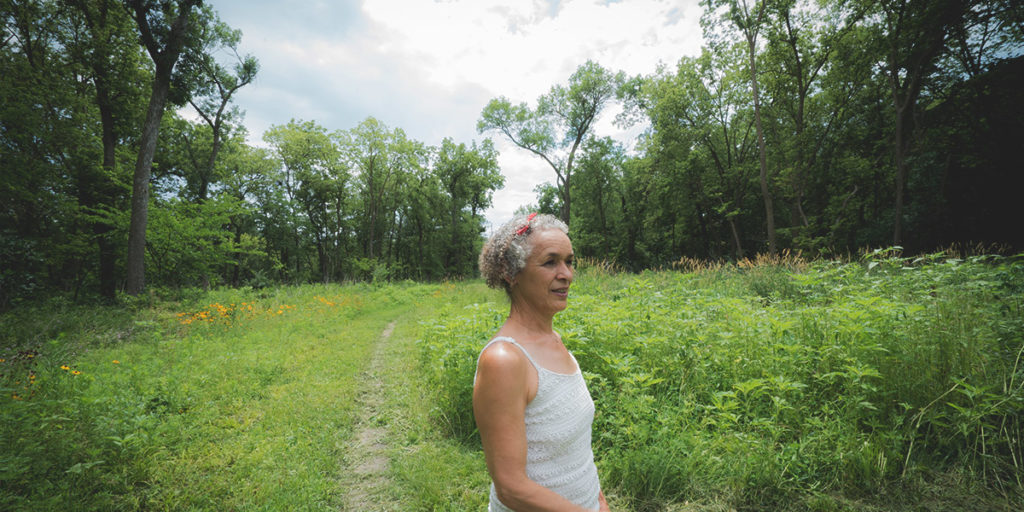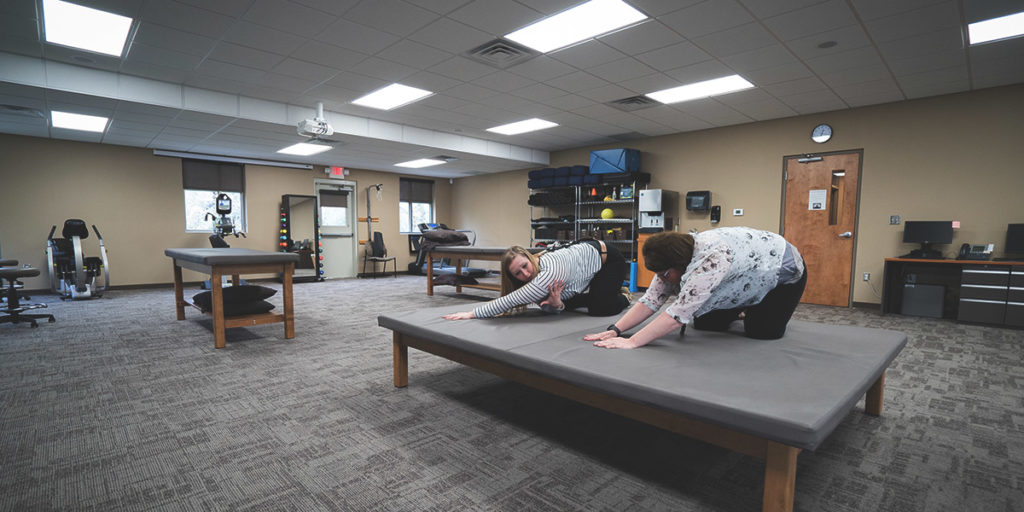
Rosina Paolini doesn’t always keep a weed whacker in her trunk, but she probably should. That, and bug spray.
On an average week, Rosina and her husband, Karl, spend upwards of 8-10 hours in Wilderness Park. Some of the time they’re hiking, but a lot of the time they’re clearing the trails to help the city keep up with the big task of maintaining the park.
She doesn’t spend this amount of time in the park because she’s paid or even asked to do it, she does it because she loves the park. It’s become who she is in a way that’s hard for her to describe but easy to understand because of the way she talks about the park… or rather, the way she can’t stop talking about the park.
Wilderness Park feels like home to Rosina for a lot of reasons, but it’s not where her story starts.
Rosina was born in Algeria, a country in northern Africa. She said her birth parents were most likely killed in The Algerian War, which plagued the area and left children to fend for themselves. As a baby, Rosina was placed in a foster home where she was adopted by American missionaries.
They hadn’t planned on adopting from Algeria, but once they saw how malnourished and small Rosina was they knew that they could either adopt her or leave her to die. After her adoption, she and her parents spent 6 years in Algeria before moving to Lincoln.
In many senses, her childhood was just as ‘typical’ as any other Nebraska-native. She went to school, rode her bike and played outside. She had a childhood friend who frequented Wilderness Park with her family and introduced Rosina to the trails, wildflowers and animals of the park. It quickly became the girls’ playground as they hiked, learned to spot rare birds and tell imaginative stories.
As Rosina grew up, the park served as the backdrop for her life. It’s where she could go when she needed a quiet space, a place to run, catch up with friends, bike, think and breathe.
When Rosina got to high school she quickly got bored of her classes. Her lack of direction, coupled with her rebellion and general teenage angst led her to drop out.
Eventually she earned her GED and realized that what she really wanted to do was be a physical therapist. She’d always loved learning about how the body worked and enjoyed people, so it seemed like a natural fit.
Rosina majored in psychology and biology and graduated as a physical therapy assistant. Now, she works at a skilled nursing facility in Lincoln where she spends a lot of her time interacting with the residents. She loves the way her work allows her to connect with others in a way that’s meaningful and genuine. It’s allowed her to use her skills in a way that’s helpful to others and rewarding in its own right.
This kind of connection is much of what she loves about Wilderness Park too. The connection between the runners, bikers and explorers, the connection to the land, animals and plant species and the connection to herself.
When budgets were cut and Rosina and many others started to notice a lack of maintenance in the park, she and her husband stepped up. Their philosophy was ‘If we don’t do it, who will?’ and what started out as a volunteer effort to enhance the park has become supplemental over the last 10 years.
It’s hard work — especially for someone who is almost 57, Rosina said with a laugh — but it’ also something she’s not planning on stopping anytime soon.
When Rosina walks along the trails, she’s confident in where she’s going because she’s been on the trail hundreds of times and because she feels like the park is hers. It’s a place where she’s invested. A place she feels responsible for maintaining, protecting, promoting and sharing with the community.
It’s a place she’d be lost without.
Rosina said she’s not quite sure how she grew to love the park so much. Maybe it’s because she grew up here. Her best days start with a 6a.m. run in the park and her most memorable weekends consist of meeting old and new families while she and her husband clear brush from the trails. It’s where she finds her sense of place and purpose in the chaos of a busy world.
Rosina said it’s hard to figure out where her story ends and the Wilderness Park story starts. There’s something about the park that makes her come to life in a way that few other things do. It’s a place she feels settled, free and at home.
She wears a bracelet that has a single phrase on it – ‘Live what you love.’ In many ways that’s what Rosina’s story has been about – finding what she loves and living it out every day. She’s motivated by more than goodwill or a sense of pride in her work, it’s about living out love… the best way she knows how.
